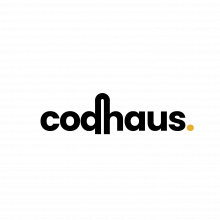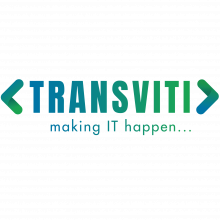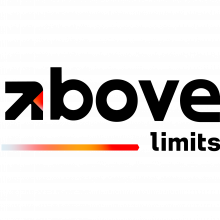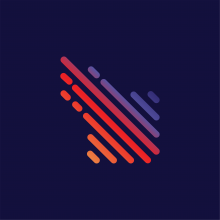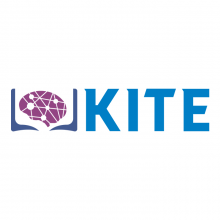Explore Top Flutter Development Companies in Saudi Arabia

Jeddah, Saudi Arabia Head office in: United States
The Hashtech is a digital agency creating innovative apps, AI, blockchain, and software solutions that drive business growth.
JustMondo started with a passion for creativity and a commitment to excellence, dedication to helping businesses thrive in the evolving digital world.
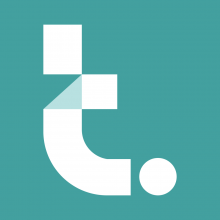
Tessafold LLC Verified Company
Jeddah, Saudi Arabia Head office in: United States
🚀 Accelerating Tech Venture Building 🚀 | We fuel Corporates & Startups to success with skin in the game.
Logo Design Company of Professional Logo Designers
Services:
Out2Sol is a Best IT and Software Company in Saudi Arabia. Offering IT outsourcing, Web & App Development, VR solutions & Microsoft solutions services
ZA Technologies is a Riyadh, technology company that offers Modern Solutions for Digital Excellence, aligning with the goals of Saudi Vision 2030.
Codhaus - Crafting Digital Experiences, Driving Real Results
Web Design & Development | Mobile App Development | eCommerce Development | Digital Marketing | Photography & Videography | Branding
Services:

iPrism Technologies Verified Company
Jeddah, Saudi Arabia Head office in: India
iPrism Technologies is a one of the leading web and mobile apps development company in India.
Transviti is a leading next-generation software development & automation company, a technology subsidiary of ECOVIS AL SABTI and FAMCO Associates.

Oranaa Marketing Services LLC Verified Company
Riyadh, Saudi Arabia Head office in: United Arab Emirates
Oranaa Marketing LLC is a full-service marketing agency . With over 15 years of combined experience in the marketplace
SPEEDFORCE is one of the leading agency in Saudi Arabia, helping brands and businesses enhance their online presence and sales.
We build exceptional brands and digital products. We create amazing User Experiences that help our clients stand out of the crowd!
Services:

Expand My Business Verified Company
Riyadh, Saudi Arabia Head office in: United Arab Emirates
Asia's largest transformative Digital service provider and Marketplace for digital products and solutions
AMA International is dedicated to provide businesses with the latest in business applications and technology solutions to drive digital transformation
KITE aims to disrupt the IT industry in Saudi Arabia and change the landscape by creating its technologies, solutions and cloud services.
Services:
iSpectra is a leading agency based in Riyadh, Saudi Arabia that specializes in UI/UX design, Drupal development , Mobile App development and support.
Saudi Systems Corporation was established in 1990 as a systems integrator company specializing in providing products and services in ICT fields.
At Skyview Smart Solutions, we are committed to provide solutions for all your software related needs that best suit your business requirements.
Services:
CPTIT serving a wide array of industries around Saudi Arabia by providing them with the latest Software solutions,IT consultations,Network solutions"
Services:
- 1
- 2
Filter Flutter Development Companies in Saudi Arabia by Cities
Find the right tech company near you or from a specific city. Some of the best companies might be located in smaller cities.
Find more Flutter Development companies around the world
TechBehemoths is the world's most advanced and user-friendly platform to match IT Companies with real clients without hustle.
The IT Industry In Saudi Arabia
A modern sector for information and communication technologies is integral to today’s advanced industrial activities.
Saudi Vision 2030 aims to transform Saudi Arabia into a globally competitive ICT hub, with modern technologies and an empowered information society.
The ambition envisages many investment themes, including the development of digital content and media, the expansion of the telecommunication system, the digitization of the country, and the creation of new high-tech and smart industries.
The government is working alongside the private sector to modernize the ICT infrastructure, enhancing the regulatory framework to enable new innovative investments, and building the most suitable ecosystem to support entrepreneurs and digital talents.
Why You Should Work With Saudi Arabian IT Companies
IT is used by the government sector to construct smart cities. It is also used in citizen engagement, which includes digital signs, iBeacons, mobile payments, mobile applications, and smart waste management; for public safety and emergency response, which includes connected officers, intelligent operation centers, and acoustic sensors; for social services like connected caseworkers, food bank inventory, and one-touch emergency response; for environmental monitoring like the study of weather/atmosphere; and to permit and license issuing activities.
Taking into account that local Saudi IT companies can handle and have expertise in these fields, it is easy to deduce that they can bring something new and innovative to the global market.
What to Be Aware of When Working With Saudi Arabian IT Companies
A low level of utilization across some components of the economy was reflected in the “Digital Middle East” report issued in October by global management consultancy McKinsey, which highlighted that just 15% of small and medium-sized enterprises in Saudi Arabia have an online presence.
According to McKinsey, Saudi Arabia’s digital economy contributes 3.8% to GDP, below the regional level of 4.1% and less than half the 8% seen in the US. The report also noted that Saudi Arabia, along with other countries in the Middle East, had only captured a fraction of its digital potential.
How Reliable Are Saudi Arabia’s IT Companies
IT companies located in Saudi Arabia are considered to be reliable, especially for regional players. The main contributor to the level of trust is the country’s reputation and the role it plays in the region. On the other hand, on a global level, there are not so many Saudi IT companies and web agencies that are popular, which is a good reason for deeper research in the search for an appropriate IT company for each project.
How Does the Saudi IT Industry Relate to the Neighboring Countries?
Of the nine countries ranked in McKinsey’s Digitisation Index for the Middle East, Saudi Arabia was fourth, behind the UAE, Qatar, and Bahrain, with solid state-based demand offset by weak private sector uptake and only moderate ICT supply and innovation capacity.
What is Flutter and what are its benefits for your projects?
Flutter is an open-source UI (User Interface) framework developed by Google for building natively compiled applications for mobile, web, and desktop from a single codebase.
It was officially introduced by Google in May 2017, although its development began earlier as an internal project named "Sky." It aimed to address challenges in cross-platform mobile app development by providing a consistent and high-performance framework for building native-like apps on iOS, Android, and other platforms. Flutter has since gained significant traction and popularity in the developer community.
Flutter has seen rapid adoption, thanks to its key advantages, such as a single codebase for multiple platforms, a rich set of pre-designed widgets, and fast development cycles. It has found use in various industries, including mobile app development, web development, desktop applications, and even embedded systems. Some notable apps developed with Flutter include Alibaba, Google Ads, eBay Motors, and more. Its usage continues to grow, and it has a strong developer community and ecosystem.
Flutter is versatile and suitable for a wide range of projects:
- Mobile Apps: Flutter is commonly used for developing mobile applications, including consumer apps, business apps, e-commerce apps, social media platforms, and more. It provides a native-like experience on both Android and iOS.
- Web Apps: Flutter can be used to build web applications, allowing developers to target browsers as well. This is still in the experimental phase (as of my knowledge cutoff date), but it shows promise for building responsive web interfaces.
- Desktop Applications: Flutter supports desktop platforms like Windows, macOS, and Linux. Developers can create desktop applications for various purposes, including productivity tools and utilities.
- Embedded Systems: Flutter can be used to create user interfaces for embedded systems and IoT (Internet of Things) devices, providing a consistent look and feel across different hardware.
- Custom UI Components: Flutter is often used to build custom UI components and widgets that can be integrated into larger applications, providing a cohesive design language.
Hourly rates for Flutter developers can vary significantly based on factors like location, experience, project complexity, and demand. On average, Flutter developers may charge anywhere from $25 to $150 or more per hour. Rates tend to be higher in regions with a higher cost of living, such as North America and Western Europe, and lower in regions with lower living costs, such as Asia and Eastern Europe.
It's important to note that more experienced and specialized Flutter developers with a strong track record may charge higher rates. Additionally, some developers or development agencies may offer fixed-price contracts for specific Flutter projects, which can vary widely based on the project's scope and requirements.
When hiring Flutter developers, it's essential to consider factors like their expertise, portfolio, and the complexity of your project. Getting multiple quotes and conducting interviews can help you determine a reasonable rate and find the right developer or team for your specific needs.
We have also written an extensive research of what skills you should be looking for when hiring Flutter developers.






